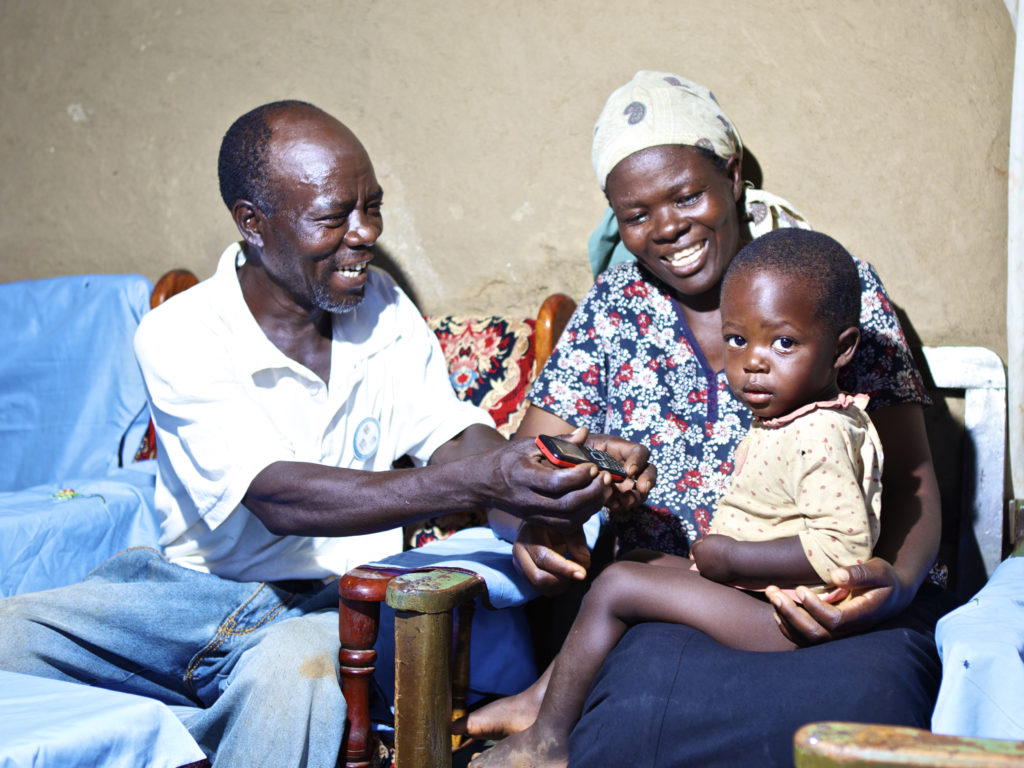“Our love has grown more”

Originally posted on the FSD Kenya Website, April 21, 2020
Coronavirus disruptions are giving some Kenyan women a reprieve from domestic burdens and giving couples a chance to change their marriages
Around the world, as fears about the coronavirus disrupt everyday life, many have expressed fear over what this means for women and gender equality at large. Having the entire family at home can increase caregiving duties that disproportionately fall on women. Women’s work outside the home can be impacted by needing to care for children. With the entire household income squeezed, women—who are often in charge of making ends meet day to day—can be particularly stressed about feeding the family. Women are disproportionately represented in medical fields, such as nursing, risking greater exposure to the virus. And, in many countries, confinement to home has come with a surge in domestic violence.
As we think about the financial sector’s response and recovery from this crisis, we have also worried about the risks that the crisis could exacerbate gender income inequality, that recovery in male-oriented jobs could come faster than that for women, that the financial institutions that primarily serve women may not fully recover, or that when families struggle to send their children back to school, girls could be left behind.
There is certainly much to worry about.
But at the same time, some of our Kenya Financial Diaries respondents tell us that in their families, the disruption of the virus is changing gender relations in their homes—for the better. Might this be a moment where additional external nudges could help solidify a shift in social norms?
Having children at home is a burden on resources, but a reprieve from domestic labour
A number of our respondents—particularly in rural areas—say that among all the disruptions caused by coronavirus, the most impactful one has been the closing of schools. Those with children in boarding schools had to scramble to find money for their transport home. Suddenly, small homes were full. And a few parents are still trying to help their children keep studying. Some are spending money on tutors and printing materials for the kids at local cyber cafés. But the biggest impact of all is in the extra food they are consuming mid-day. They find their stores of grain depleting rapidly, and many adults are foregoing one meal a day to make sure the kids stay fed.
This is not a trivial strain for families who’ve seen their incomes diminish significantly since the first case of coronavirus in the country. Bernadette in Vihiga commented, “With the children at home, they keep crying when there is no food. If they were in school, even though they would not have eaten, they would not be bothering me. I would not see them cry.” Many parents reported cutting their own meals to make sure the children were fed. Others mentioned drinking only black tea for breakfast and eating one meal a day to make sure the kids were still eating enough.
It is this resource burden they notice. Almost none of them complained that having children at home was interfering with their work. Quite the opposite! Many—particularly those in rural areas—were very grateful that having their children around relieved women of their heavy load of domestic chores in the house and on the farm.
“My children are helping with household chores like herding, fetching firewood, cooking and fetching water.”
“My three sons have been helping out by hawking the face masks their mother has been sewing. They are also helping in taking care of the 15 ducks I am rearing for sale in December.”
Not only are the children helping out with work, they seem to be bringing some families close together, spending quality time with one another.
“My older sons would normally run away to go drink local brew but because the chief has been going round to those drink dens they don’t go there so they are assisting in weeding the shamba.”
“My house is full of life! It’s not boring as it used to be.”
For some families, having husbands home more is triggering shifts in household divisions of labour and the health of marital relationships
With this extra help at home, some women are reporting that more of their time has been freed up to do paid work. This is particularly helpful since typically paid work is in short supply, and the entire family depends on that little cash continuing to trickle in. When husbands have come home from the cities, they have come empty handed and often without the ability to keep working in the rural areas. If their wives still have some casual work to do or still have a business that hasn’t completely shut down, the husbands encourage them to keep up with that work. Everyone depends on them.
Whether it is by this economic necessity or the mere fact of spending more time together, some respondents are telling us that their relationships with their spouses are shifting.
Some wives told us:
“Now, we are all involved in household chores like fetching water, washing utensils, and cooking, unlike previously. My husband now washes clothes and has trimmed the fence. For us our love has grown more, and we’ve strengthened our relationship.”
“My husband normally uses his pension money to buy alcohol and cigarettes. This time around, he brought home maize!”
And some men are noticing a change, too:
“There is unity in the family as we are spending more time together.”
“I am now doing most of the farm work, and the children are helping their mother with household chores. Our relationship as a family has improved.”
“My wife is now relaxing as my children and I have taken over all chores.”
Can these shifts be encouraged and solidified?
Such changes are not universal. We’ve also heard some men resisting taking on any “women’s work,” and shifting significant financial management burdens to their wives. We haven’t heard of domestic violence spikes, but we might not pick up on such issues over the phone. The point is simply, in some families, being confined at home together is offering them the chance to deepen their bonds and reconsider their gender roles, seemingly making space for a greater appreciation for the contributions of mothers.
It is not uncommon for periods of upheaval to trigger shifts in gender norms. But whether those norms shift durably seems to depend on whether they are accompanied by changes in underlying attitudes about gender and reinforced by a social cues that consider such changes positive and part of healthy versions of masculinity and femininity.
Might this be a moment where media, for example, could encourage relationship conversations and reinforce more equitable social norms? Evidence suggests that norms shifts can be supported by hearing reinforcing messages from peers and thought leaders and that mass media can be effective in supporting these changes. That’s particularly good news given how little face to face engagement is possible right now. The isolation induced by the virus provides the opportunity to both reflect on relationships and practice new roles. Might there be a way to add in the social reinforcement to help make these changes last?
This is part of a series of rapidly-produced blogs on how low-income Kenyans are coping with the changes in their lives induced by the novel Coronavirus (COVID-19). This research was implemented in partnership between BFA Global and FSD Kenya. Read more about the Kenya Financial Diaries project here. We will continue checking in with Diaries participants throughout the crisis. For the latest news and insights from this work, follow @FSDKe and @BFAGlobal on Twitter, as well as hashtags #Covid19DiariesKenya and #KomeshaCorona.



